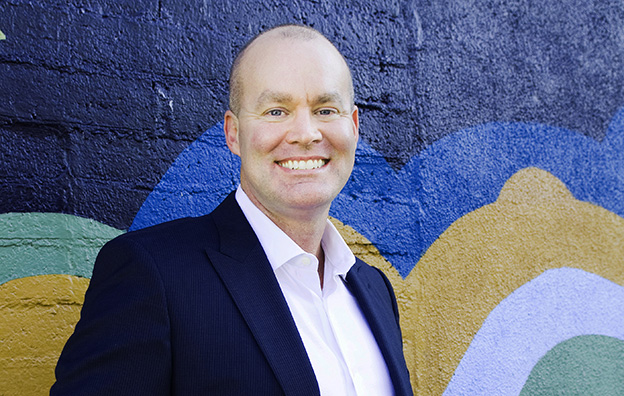
To look at Cinequest’s 30-year legacy and to glimpse into its future, I sat down with CEO and Co-Founder Halfdan Hussey and Director of Programming and Associate Director Mike Rabehl.
The Movie Gourmet: It’s been 30 years. How is Cinequest facing a new world of streaming platforms, new Internet-based movie studios and the rest?
Halfdan Hussey: Maybe it’s Cinequest that has changed the world. How have we been able to be an influence? We’ve sought to democratize access for artists to create what they wanted to create. Technologies have been a tool for that.
HH: We were doing digital filmmaking when it was still scorned by the old club. QuickTime debuted at Cinequest, we had files delivered over the Internet, pioneered IP-delivered art. The technology empowers more people, people in more countries, people with less money, the “Maverick People”.
HH: Was it better in the 70s? You had to wait for someone in Hollywood to invite you in or you couldn’t make a movie.
Mike Rabehl: People are drawn to indie cinema right now. Look at the popularity of Jojo Rabbit and Booksmart. The opportunities are much richer.
TMG: So, 30 years ago, the first screeners probably arrived on VHS tapes?
HH: Yes, they did. Digital gives more people an opportunity – because that’s what matters. More access is better. Watching a movie on a phone doesn’t replace the experience of watching it on a big screen, but more people have access to the art. Why are people upset with Netflix winning awards? More access to the art is better.
MR: How many books are sold on Amazon? Print media is not dead. You may read it on a Kindle or a tablet and not on paper, but you’re still engaging in the content, just in another format.
HH: It was a confluence of artists and engineers that started this company. The love of the artist has always been in the organic fiber of the organization. We want an experience that is highly inclusive and innovative.
TMG: So, the social interaction is a Cinequest core value?
HH: We seek to help people create and to connect with people who will appreciate their work. Netflix and Amazon do both those things. Every time you can get someone to access your work – that is important. What Cinequest adds is, first, democratization of access and, next, the forging of community. We bring people together to share the experience.
TMG: And now television is part of Cinequest. Because you want Cinequest to taste the good artistic content that’s on TV?
HH: That started when HBO pushed quality.
Mike Rabehl: TV used to NOT be adventurous.
HH: Mike likes stories.
TMG: And what do you like?
HH: And I like art that can lift hearts and inspire, art with a Maverick or original aspect, art that exposes you to a world other than your own.
TMG: What is Cinequest’s next Maverick challenge?
HH: The next challenge is marketing – how do we get people to engage with the new ways artists can deliver their work? How do we build community?
MR: We have built community. I still hear from filmmakers who have met here and gone off and made films together.
HH – We’re just focused on connecting! VR, AR, IR – we don’t know what is going to happen. Let’s look at one of the traditional and most compelling art forms – imagine live theater and AR coming together!
MR: That’s why we are taking the Redwood City Cinequest events to a new level and adding soirees so artists and audiences can connect with each other.
HH: My favorite events involve a person – like what we’re doing with ruth weiss. [Note: Hussey is referring to Cinequest presenting famed beat poet ruth weiss with its Maverick Spirit Award AND screening the documentary ruth weiss, the beat goddess AND hosting readings by local poets, all in the same event.] That will be a very cool event.
